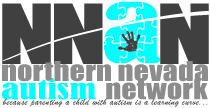
voice mail
(775) 753-9243
fax (775) 753-9243
About Autism
Today, 1 in 88 children are diagnosed with autism, making it more common than pediatric cancer, diabetes, and AIDS combined. Autism occurs in all racial, ethnic and social groups and is four times more likely to strike boys than girls. Autism is a serious medical disorder that affects a child’s health and his ability to learn. Autism impairs a person’s ability to communicate and socialize with others. People with autism display repetitive behaviors and often become upset with changes in their routine. Medically, many children with autism suffer from painful gastrointestinal problems, eating disorders, a higher frequency of colds, and severe airborne and food allergies. Many parents have noticed significant improvements in their child upon the introduction of a gluten and casein free diet.
With the incidence of autism on the rise, there is much that is poorly understood, from cause to care. However, there is one widely accepted fact: Intensive Intervention significantly improves the quality of life for both children with autism and their families.
Critical Information
Children with autism can LEARN.The Individual’s With Disabilities
Act (IDEA) is a federal law that mandates that all children
with autism between the ages of 3 and 21 years of age receive a free
and appropriate public education (FAPE) that meets their unique
individual needs. IDEA establishes that the parent has an
explicit role in the planning and monitoring of their child’s
individual education program. The parents are the child’s most
powerful advocate. This means that the parent must be informed
and knowledgeable about autism and IDEA to be an active participant
in their child’s educational process.
NNAN helps parents learn how their child with autism learns. The world of special education is complicated. Although all children are different, most children with autism learn best when provided:
- Visual Strategies like Social Stories and Schedules
- Functional Behavioral Analysis to reduce inappropriate behaviors
- Task Analysis to determine how to teach new skills most effectively
- Positive Behavioral Supports to reduce inappropriate behaviors
- Discreet Trials to teach skills
- Predictable Structure

Spring Forward for Autism
5K Run/Walk